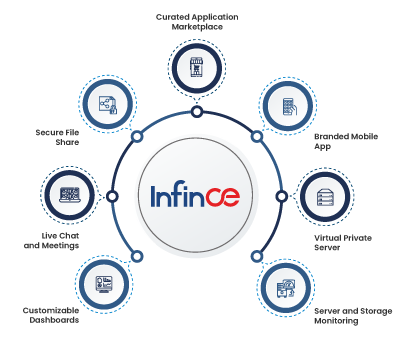Top Must Watch Trends in Enterprise Video Conferencing
In an office environment, a meeting is scheduled often to not just communicate information, but as a means to establish, nurture and prosper relationships- both new and existing- between all involved stakeholders. This calls for a better solution for conferencing than conventional telephone and audio conferencing solutions. Videoconferencing has become a mainstay in today’s dynamic workspaces where technology facilitates remote working from anywhere in the world. The added benefit of sourcing talent from across the globe for your unique needs and not having to spend on physical infrastructure to accommodate them is a boon, especially for small and medium enterprises. Video conferencing offers far higher levels of engagement and collaboration opportunities when compared to other employee communication channels. So what will video conferencing enable for your workforce today?
Here are 5 trends in the workplace that find seamless adaptability with the aid of video conferencing.
1.Accountable Remote Workforce
As mentioned initially, today the large millennial population in the workforce has made the demand for remote work options quite high. Employees want to work out of their own comfort with more freedom than a typical office environment. As for employers, they are left with no option but to allow this flexibility for hiring the best talent to enable their growth. This is precisely the area where video conferencing can bring in the most impact. Today, successful organizations manage their remote workforce efficiently through video conferencing.
Team meetings and presentations involve live video streams from every employee location to ensure that all team members are present and aware of their roles and responsibilities. This is the next best thing to having everyone in a single room and sharing their responsibilities in front of the large group. So the video collaboration platform that is deployed across your enterprise requires a transparent login and access control policy that will ensure participant interactions are tracked and logged for future reference.
2.Smaller and Smarter Meeting Rooms
When you have fewer employees in the office and more on a remote basis, the need for physical meeting spaces diminishes inside the office. However, meeting rooms need to have, smarter equipment to ensure that team
For remote working staff, they need a simpler solution like a mobile app which allows them to easily join the video conferencing stream and share information with their peers. While choosing your video collaboration platform, ensure that it offers all these levels of flexibility that will enable all stakeholders to seamlessly engage in video conversations.
Related Read: Why should a small business opt for INFINCE?
3.Content Sharing Platforms
In addition to enabling every team member to see each other, video conferencing platforms need to provide the ability to share files and other content in accordance with better compression and security policies to ensure lower bandwidth consumption and safer data transmission. This is vital for remotely working employees as they often have to collaborate with their peers in office for reviews and clarifications on their work in progress which may be
Your video conferencing solution needs to take into account the desired storage and streaming requirements for file sharing as well as the capability of doing so from even a mobile app. With flexible content sharing ability, employees will be empowered to work better from anywhere as they already have an efficient video communication channel which is also a powerful collaboration system as well.
4.Cloud-Enabled Video Conferencing
For small and medium businesses to remain competitive and cost-efficient
5.Unified Communications
If your core business is not technology, then having to manage a host of solutions for team management and communication like video conferencing, audio conferencing and other intra-organizational collaboration will be a difficult activity requiring considerable workforce effort. This is where unified communication platforms make a difference.
They allow employees to easily switch between communication and collaboration channels on the go depending on their convenience. This will certainly improve productivity as employees are not forced to shuttle between various apps during a conversation. Enhanced collaboration would also enable teams to quickly arrive at decisions and enable work to be done collectively and within stipulated timelines.
Video conferencing is an irreplaceable communication channel for today’s organizations if they aim to build a robust and reliable work culture both in-house and with their extended remote peers. It will be best to have a scalable and cost-efficient technology backbone in your organization that will offer solutions for management, video conferencing and integrated employee collaboration all the same
By seamlessly, enabling businesses to build their technology infrastructure







